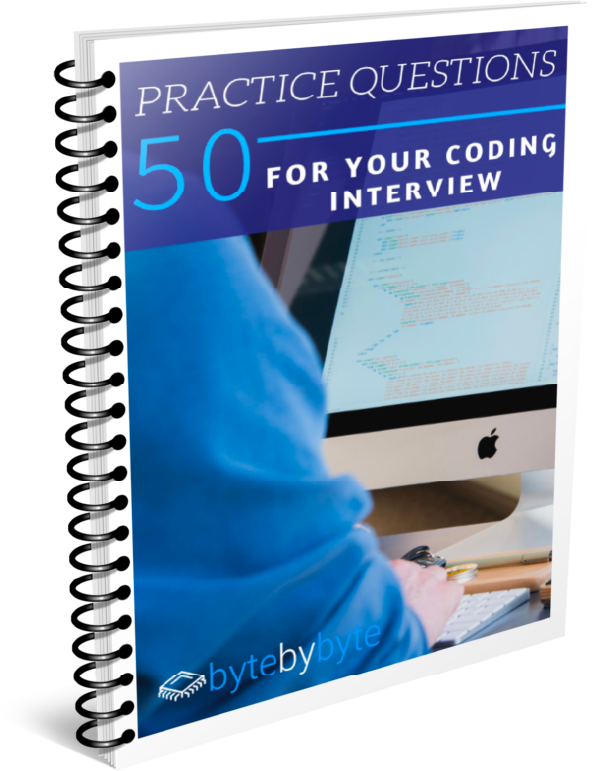BEEP BEEP BEEP
The alarm screams that it's time to get up and go to what you thought was your dream job.
You stare blankly at the ceiling dreading the day ahead.
“What's wrong with me!? I worked so hard to land the job at my company. I studied for months to ace the technical interview. I was so excited when receiving the acceptance email just a few months ago. I'm living what I thought was my dream, but now it feels like I'm living a nightmare.”
We all have off days. Days where we really don't want to get out of bed and go to work. Days where we are not excited about the work we are doing or even the people we are working with.
But burnout is deeper than this. It goes beyond just working on projects we're not excited about, not getting along with our team, etc.
According to Healthline, burnout is defined as severe physical, mental, and emotional exhaustion.
It's the real and deep exhaustion that leads to a sense of apathy around everything we are doing. It's hard to get excited about anything in our work, or even more broadly, anything else in our life.
This overwhelming and chronic lack of excitement, fatigue, almost depression-like symptoms are precisely what we want to avoid. We really want to keep a close eye on when any of these “symptoms” arise so that we can proactively nip them in the bud and avoid the burnout scenario.
If you're already burned out, it can be hard to come back from that. That’s why it's so important that we actively work to avoid burnout in the first place.
Once you’re severely burnt out, talking to a mental health professional can be very helpful. Handling burnout once you’re there is above my pay grade.
However, there are several strategies I recommend to help you avoid burnout before it happens. If you use these strategies proactively, they can dramatically help to minimize burnout from taking over your professional and personal life.
Four strategies for avoiding burnout
So. How do you avoid burnout?
In this post, I’m going to show you four specific strategies to avoiding burnout. Even if you're not feeling burnt out at your job, you will still get value from this post. It is very important to be proactive when it comes to burn out and to be aware of these strategies before the small dragon becomes a large fire-breathing behemoth of a problem.
Let's cover the four key strategies for avoiding burnout.
Strategy 1: Find meaning in what you’re doing
Most people don't really focus on the meaning of their work. Instead, they focus all of their attention on the tasks at hand and the daily necessary tasks that need to be done. While this is important, it misses the bigger purpose in their work.
And when they do think about meaning, it tends to be in terms of factors like “salary”, “prestige”, etc. These are not unimportant factors, but if you are using them as the sole compass for how you choose how to spend the majority of your day, you will likely find a lack of meaning in your work.
This may be overly hyperbolic, but imagine that you landed a job at your dream company with a great salary but your role included 8 hours of counting grains of sand or something equally as mundane. No matter how much the salary and prestige, you’d likely find yourself quickly looking for a new job.
While salary and prestige are important, they won't give you the necessary long-term meaning that you're looking for in your work. A great framework for thinking about meaning and thinking about “what is important to me” is called the AMP Framework.
The AMP acronym stands for Autonomy, Mastery, and Purpose. This comes from Daniel Pink’s book Drive.
With these three elements, we can scale our autonomy, mastery, and purpose to think about what is most important to us now in our careers.
Let's take a look at these elements and see how they can be applied to our situation as a developer:
- Autonomy: How can I find a job with the freedom to allow me to work on what I want, when I want, where I want, and on projects that I'm excited about?
- Mastery: How do I develop new skills? What job opportunities do I have where I am going to get to learn new things? A job where I can get to work with true experts in their field and develop those skills.
- Purpose: How do I land a job at a company with a mission that I really believe in?
If you look for a job that hits on these three elements and are able to answer these questions it's going to help you develop deeper meaning in the work that you are doing.
Long-term, this is going to make it much easier to handle the inevitable stress that comes from any job, and ultimately, avoid burnout in the long run.
Doing something that is meaningful can be stressful, but the stress is in some sense worth it to us where stress from a situation that lacks meaning is just pure stress without any redeeming qualities.
We can't avoid stress, but with ensuring we select a job that meets autonomy, mastery, and purpose, we will feel more as if that stress is worth it as it invokes meaning to our struggle.
Strategy 2: Acknowledge the wins
This is something that I really struggle doing and is something that takes a lot of deliberate action on my part. The struggle is ultimately worth it though as it makes a big difference.
A lot of times, we set a goal for ourselves, and then as we progress towards the goal, we keep moving the goal post.
This is something I do frequently. For instance, I might say that I want to get “X” amount of reader on my blog, only to eventually obtain that number and, without acknowledging reaching the initial goal, just set the goal to an ever increasing higher number of readers.
Perhaps you've set similar goals for yourself as well where you are always working towards some goal, but as the goal post keeps getting moved, you never actually achieve the goal you initially set out to accomplish.
Continually moving the goal post on your goals does not allow you to actually look back and acknowledge what you actually accomplished.
One thing to watch out for in your own career is that when you finish a project, are you just picking up and moving onto the next project or do you take some time to acknowledge what you did, where you started from, etc.
If you are always just continuing to move the goal post down the field, it's natural to feel inadequate and stressed at having to get to that next level.
Strategy 3: Take intentional personal time
This strategy is about being very intentional about taking time for yourself and focusing on your health and well-being.
If you find yourself working on a big project with lots of tight deadlines, intentional personal time is easy to move to the sidelines unless you make it a priority to keep it front-and-center.
It is a common trope in the software world to code for 16 hour days, order something quick and easy like pizza, sleep on the floor, only to wake up and do it all over again day in and day out.
Doing this consistently for a prolonged period of time can wreak severe damage on your personal well-being and health. It's probably one of the worst things you can do for yourself when hitting these deadlines, but oftentimes it feels like it's necessary to ensure you don't get off track.
Focusing on your diet, taking time for yourself, and exercising may all seem like activities that will take away from the time that you can spend on work. However, taking deliberate action on these aspects can ensure that you are much more effective during the time that you actually are working and also are not putting your mental and physical health at risk.
In the long-term, making time for these activities will make you more intentional about the time that you do spend working and will also limit the possibility burning out.
Strategy 4: Setting clear boundaries
This strategy is focused on setting clear boundaries between “work time” and “personal time”.
This can be very difficult to accomplish during busy times because it feels as if you need to be working all of the time. However, as an employee, you have a right to take time off. You have a right to take vacation.
It is almost too easy to get down a rabbit hole where you say to yourself something along the lines of “I'm focused, I'm okay, I don't need the break”. However, in the long-term this is going to have negative impacts, especially with respect to burn out.
The intent of this strategy here is to ensure that you make use of and utilize the times you have for the breaks and vacation at your disposal. They are there to be used.
The key thing to realize here is that taking breaks and clearing your head is not the same with wasting time and not doing work. Instead it is necessary to take part in these types of things precisely so you can return to work with a clear and intentional focus without burnout.
Wrapping up
If you can take these strategies and apply them to your career, this is going to allow you to have a much more effective and long-term career rather than really getting stuck because of getting burned out.
If you are feeling really burned out right now, take the time to reach out to a mental health professional and find someone to talk to who can give you advice and help you through. Ideally, taking advantage of these four strategies should allow you to avoid burnout and to have a successful, impactful, meaningful, and long-lived career.



